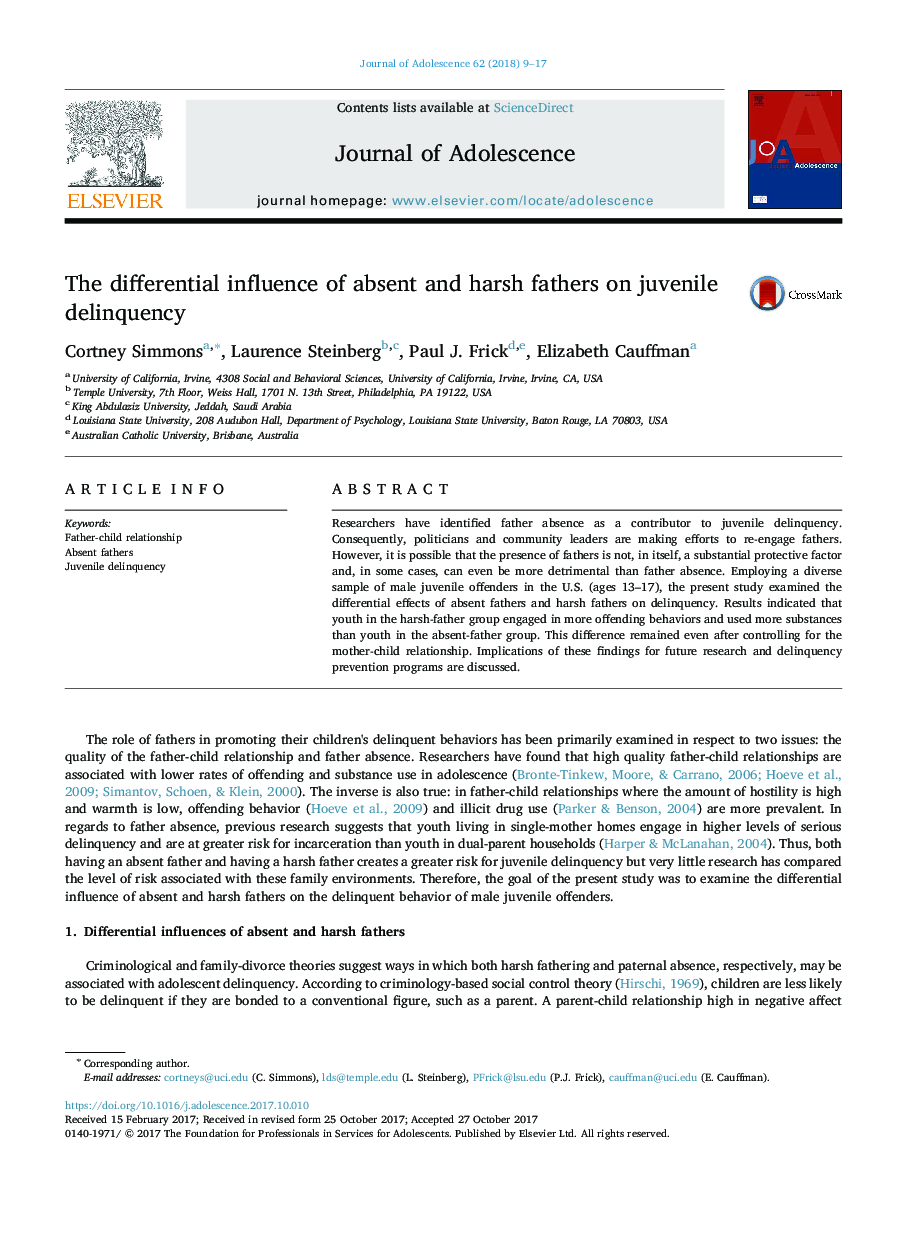| Article ID | Journal | Published Year | Pages | File Type |
|---|---|---|---|---|
| 7240973 | Journal of Adolescence | 2018 | 9 Pages |
Abstract
Researchers have identified father absence as a contributor to juvenile delinquency. Consequently, politicians and community leaders are making efforts to re-engage fathers. However, it is possible that the presence of fathers is not, in itself, a substantial protective factor and, in some cases, can even be more detrimental than father absence. Employing a diverse sample of male juvenile offenders in the U.S. (ages 13-17), the present study examined the differential effects of absent fathers and harsh fathers on delinquency. Results indicated that youth in the harsh-father group engaged in more offending behaviors and used more substances than youth in the absent-father group. This difference remained even after controlling for the mother-child relationship. Implications of these findings for future research and delinquency prevention programs are discussed.
Keywords
Related Topics
Health Sciences
Medicine and Dentistry
Public Health and Health Policy
Authors
Cortney Simmons, Laurence Steinberg, Paul J. Frick, Elizabeth Cauffman,
